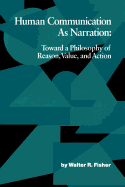Define narratives.
Definitions must account for scope and content.
Explore the issue of scope; how wide a net does this definition cast?
Explore the issue of content; what does this definition include/exclude?
What are the implications (potential consequences) of your definition? Does narrative show up in your academic disciplines, and how? What are the implications for your disciplines’ treatment of such issues as facts, values, power, and representation?
Definitions must account for distinctions and interactions between narrative as a term referencing a literary (disciplinary) genre in a more discrete sense and as one signifying a significant aspect of knowledge production, the making of social relations and realities and making of our identities and our sense of self.
Definitions must take into account how narrative functions to link, pattern, sequence and relay the historical events, interactions, locations and visual and verbal images employed in our ways of knowing.
Use these sources as a starting point for your definitional essay.
Use Primo to find resources on your topic at Collins Library and beyond. Request books held by Summit libraries for delivery to Collins Library within 3-5 days.
To find books about narrative, use the following search terms in the catalog:
 History As Rhetoric
by
Ronald H. Carpenter
History As Rhetoric
by
Ronald H. Carpenter
 The Cambridge Companion to Narrative Theory
by
Matthew Garrett (Editor)
The Cambridge Companion to Narrative Theory
by
Matthew Garrett (Editor)
 Narration and Knowledge
by
Arthur C. Danto
Narration and Knowledge
by
Arthur C. Danto
 Human Communication as Narration
by
Walter R. Fisher; Carrol C. Arnold (Editor)
Human Communication as Narration
by
Walter R. Fisher; Carrol C. Arnold (Editor)
 Recent Theories of Narrative
by
Wallace Martin
Recent Theories of Narrative
by
Wallace Martin
In addition to the databases listed below, re-read the article posted on Moodle called Narration as a Human Communication Paradigm by Walter Fisher.
An multidisciplinary journal archive. It includes archives of over one thousand leading academic journals across the humanities, social sciences, and sciences, as well as select monographs and other materials valuable for academic work. Includes the Artstor image collections.